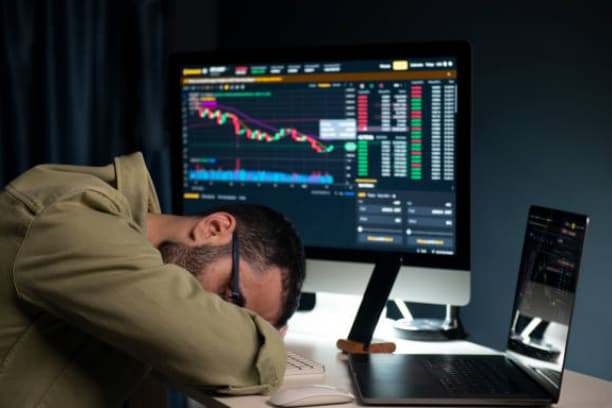What is Bitcoin? Is it legal? Is it a scam?
When we talk about Bitcoin, we always hear a lot of voices. Some people think that it is the currency of the future and may replace the traditional financial system; others think that it is a fraud, a bubble, and may crash at any time. So, what is Bitcoin? Is it legal? Is it really just a scam? These are important questions for both novice and experienced investors. Today, we're going to take a closer look at these questions to help you better understand the truth about Bitcoin and how to proceed with caution in this digital asset world.

What is Bitcoin?
Bitcoin is a decentralized digital currency founded in 2009 by an anonymous figure named Satoshi Nakamoto. Unlike traditional currencies, Bitcoin is not controlled by any country or central bank, but operates on blockchain technology, where all transactions are recorded in a public ledger that can be accessed by anyone, increasing transparency and security. Bitcoin was originally designed to address the drawbacks of the existing monetary system, particularly high inflation, currency depreciation, and the intermediation costs of the banking system.
Due to its decentralized nature, Bitcoin is not subject to government or institutional interference, which makes it a globalized payment tool. However, this has also brought about controversy over the legality of Bitcoin, as it could be used for illegal transactions or tax avoidance. Therefore, understanding Bitcoin requires an understanding of its technological background and how the market works.
Is Bitcoin legal?
The legality of Bitcoin is inconsistent across the globe. Many countries regulate or ban the use of Bitcoin, while others choose to keep an open mind. For example, in the United States, Bitcoin is considered property and is subject to tax regulation, while in China, Bitcoin trading is prohibited and the government has cracked down on illegal activities related to cryptocurrencies. Taiwan is currently more neutral on Bitcoin, not banning its use or trading altogether, but requiring exchanges to follow anti-money laundering regulations.
Therefore, whether Bitcoin is legal or not depends mainly on the legal regulations of your country or region. In Taiwan, it is legal to hold and trade Bitcoin as long as you comply with relevant laws, such as tax reporting obligations.
Is Bitcoin a Scam?
Whether or not Bitcoin is a scam is a question that needs to be looked at from a variety of perspectives. Bitcoin itself is not a scam. It is an innovative currency based on blockchain technology and has many loyal supporters and investors. However, just like any other emerging technology, the market is full of unscrupulous individuals who use the anonymity of Bitcoin to commit fraud, money laundering, and other illegal activities.
For example, some "Bitcoin investment schemes" that claim to offer high returns may in fact be typical Ponzi schemes. These scams usually attract a group of people to invest first, and then use the funds of the later investors to pay off the earlier investors, ultimately resulting in heavy losses for all. Therefore, you need to be careful when investing in Bitcoin and choose a legitimate exchange and a creditworthy investment program in order to avoid falling into the trap of fraud.

How to Spot a Bitcoin Scam
In the cryptocurrency market, there are many cases of fraud, so it is important to recognize Bitcoin fraud. Be very wary of any investment that claims to guarantee a high return. The Bitcoin market is extremely volatile and no one can guarantee a steady return. It is also important to understand the background and reviews of the trading platform. It is important to choose a platform that is regulated, has been in operation for a long time and has a good reputation.
For example, well-known exchanges such as OKX offer transparent and guaranteed trading services with strict KYC (identity verification) and anti-money laundering measures, which can effectively reduce the risk of fraud. In addition to these platforms, some open-source blockchain projects and decentralized exchanges (DEX) are also emerging as options for secure trading.
Choosing a Legal Platform to Trade Bitcoin
Choosing the right trading platform is a very important step when you decide to enter the Bitcoin market. Legitimate platforms will have comprehensive customer service and security measures, such as two-step verification (2FA) and cold wallet protection. Some mainstream platforms in Taiwan, such as OKX and Binance, offer a variety of safeguards to ensure the safety of user funds.
In addition to choosing a platform, it is also important to understand how to properly store Bitcoin. The security of Bitcoin depends largely on the user's private key. The private key is the only proof of access to the Bitcoin, and if it is lost or stolen, the Bitcoin cannot be recovered. For this reason, it is recommended to use a hardware wallet to store long term holdings of Bitcoins rather than keeping them on an exchange for long periods of time.
Bitcoin Investment Risks and Rewards
The risk and reward of investing in Bitcoin is a concern for many investors. As the price of Bitcoin is extremely volatile, it can fluctuate significantly in the short term. For example, in 2017, the price of Bitcoin rose from less than US$1,000 to nearly US$20,000 in just a few months, but then fell back sharply, causing many investors to lose money.
However, in the long run, the price of Bitcoin still shows some potential for growth. Many experts believe that Bitcoin, as a kind of "digital gold", may become a kind of inflation-resistant, value-preserving asset in the future. Of course, this also depends on the development of blockchain technology and the market demand for Bitcoin.
Before investing in Bitcoin, investors should do a thorough risk assessment, understand their own risk tolerance, and remain rational and not be affected by short-term fluctuations in the market.
The Long-Term Value of Bitcoin
The long-term value of Bitcoin is affected by a number of factors, including the development of blockchain technology, the state of the global economy, and the demand for Bitcoin. The demand for Bitcoin is likely to grow further in the future as more and more businesses begin to accept Bitcoin as payment. This also means that there is still uncertainty in the Bitcoin market and investors should remain vigilant and manage their risk when entering the market.
Frequently Asked Questions Q&A
Q1: Is Bitcoin legal to trade?
Bitcoin is legal in Taiwan, but needs to comply with local tax regulations. Trading platforms must also comply with anti-money laundering regulations, so it is important to choose a legitimate exchange to trade on.
Q2: How can I protect my Bitcoin assets?
To protect your Bitcoin assets, it is recommended that you use a cold wallet (hard wallet) to store your long term Bitcoin holdings and activate the trading platform's two-step verification for added security.
Q3: Will Bitcoin really replace traditional currencies?
As a decentralized digital currency, Bitcoin has certain value preservation and payment functions, but more technological development and worldwide legal recognition are needed to fully replace traditional currencies.














